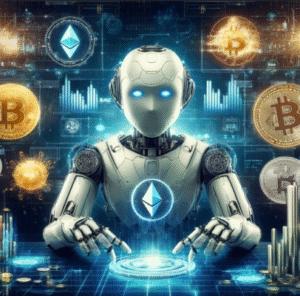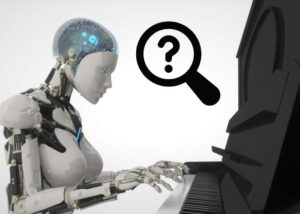https://theworldfinancialforum.com/participate/

Everywhere we turn, someone is talking about Artificial Intelligence. It’s in our phones, our cars, our homes — but some of its biggest moves are happening out of sight, deep inside factories, power plants, oil rigs, shipping yards, and data centers that quietly run the world’s backbone industries.
I’ve spent years watching this unfold, and I keep asking myself the same questions: Is AI really going to be better than us? Are we ready for what it means when machines don’t just help us work — but quietly outdo us at the very tasks we built entire economies and communities around?
Smarter Machines on the Factory Floor
Today’s factories don’t look like the grainy black-and-white photos from the Industrial Age. Instead of crowded rows of workers hammering metal by hand, you’ll find clean, hyper-efficient production lines where robotic arms move with perfect synchronization. Computer vision cameras scan each product, spotting invisible defects in milliseconds. AI-powered software orchestrates the flow of parts and materials with a precision no human manager could match alone.
The benefits are undeniable. AI helps factories reduce scrap, lower energy consumption, and improve workplace safety by taking on dangerous, repetitive tasks. In some sectors — like aerospace or semiconductor manufacturing — AI’s role is the difference between staying globally competitive or closing the doors.
But every time the technology steps up, the human role shifts. And sometimes, it disappears altogether.
Predictive Maintenance: When Machines Tell Us What They Need
One of the most remarkable industrial applications of AI is predictive maintenance. Traditionally, companies either waited for something to break — risking catastrophic downtime — or stuck to rigid maintenance schedules that wasted time and resources.
Now, with IoT sensors feeding gigabytes of data into machine learning algorithms, companies can predict failures days or weeks in advance. This is a triumph of efficiency — turbines that once cost millions in emergency shutdowns can keep spinning longer, safer, cleaner.
But there’s a flip side. Skilled technicians who used to diagnose problems by listening to the hum of a motor are being replaced by dashboards and algorithms. What happens to that craft knowledge — that human instinct built over decades? Does it fade away, or does it evolve into a new kind of expertise? Too often, no one has a clear answer.
The Supply Chain: AI’s Invisible Hand
Beyond the factory walls, AI is transforming how raw materials move around the globe. AI tools forecast demand spikes and disruptions weeks in advance, helping companies adjust shipping routes and inventory. Autonomous vehicles and drones promise to make last-mile delivery faster, cheaper, and less reliant on human drivers.
During the pandemic, the fragility of global supply chains was laid bare. Many companies that already had AI-driven forecasting survived the chaos better than those that didn’t. So yes — AI can make the system more resilient. But as we automate more links in the chain, we rely on fewer human hands. At what point do we risk losing the local jobs and small businesses that once kept these systems balanced and adaptable?

The Missing Conversation
There’s something unsettling in how casually we discuss these shifts. Boardrooms and tech conferences buzz with excitement about cost savings and efficiency gains. But outside those walls, people wonder if there’s still a place for them in this new economy.
I call it the missing conversation — the lack of scope awareness about what happens to real people when AI steps in to optimize entire industries. It’s not just a question of new jobs replacing old ones — it’s about whether our institutions, education systems, and leaders are moving fast enough to help people make that leap. Right now, they’re not.
Will AI Be Better Than Us — Or Just Different?
Sometimes we ask, will AI be better than humans? But maybe that’s the wrong question. AI won’t be better in the way we think — it’ll be different. It doesn’t get tired, bored, or unionize. It won’t skip steps out of carelessness or protest unsafe conditions. It finds patterns in oceans of data that no single brain could hold. But it also doesn’t understand why any of this matters.
It won’t protest when an algorithm-driven decision closes a factory that supported thousands of families. It won’t mourn the loss of a skilled trade passed down through generations. It won’t notice the gap left behind when people lose work that gave them purpose.
That’s on us to notice — and do something about.
A Turning Point — If We Want It
There is no question AI can help solve massive problems. It can lower carbon emissions in heavy industry. It can boost productivity so companies stay competitive against low-wage countries. It can help workers avoid dangerous tasks that once caused countless injuries and deaths.
But these gains only add up to true progress if we take responsibility for the parts AI can’t see: people, communities, and what meaningful work means in a world run by intelligent machines.
We need leaders — in business, government, and technology — who care about more than just profit margins and quarterly earnings. We need a plan for large-scale reskilling and for building new pathways to purpose and prosperity. And we need to break through the blind optimism that assumes “the market will sort it out.”
Because it won’t. Not unless we make it.
My Final Thought
I’m not afraid of AI itself. I’m afraid of what happens when we give it the keys to our most vital industries without stopping to ask: Are we using this tool to serve people — or to quietly replace them? Progress is not automatic. Wisdom is not built into the code. That part is still up to us.
So before we celebrate the next leap in industrial AI, let’s take a breath and widen the conversation. Let’s ask the harder questions about what kind of future we’re building — and who gets to share in it.
If we get that right, maybe AI won’t be “better than us.” Maybe it’ll simply help us be the best version of ourselves — more innovative, more resilient, more human.
And that’s a future worth building.
You might enjoy listening to AI World Deep Dive Podcast: